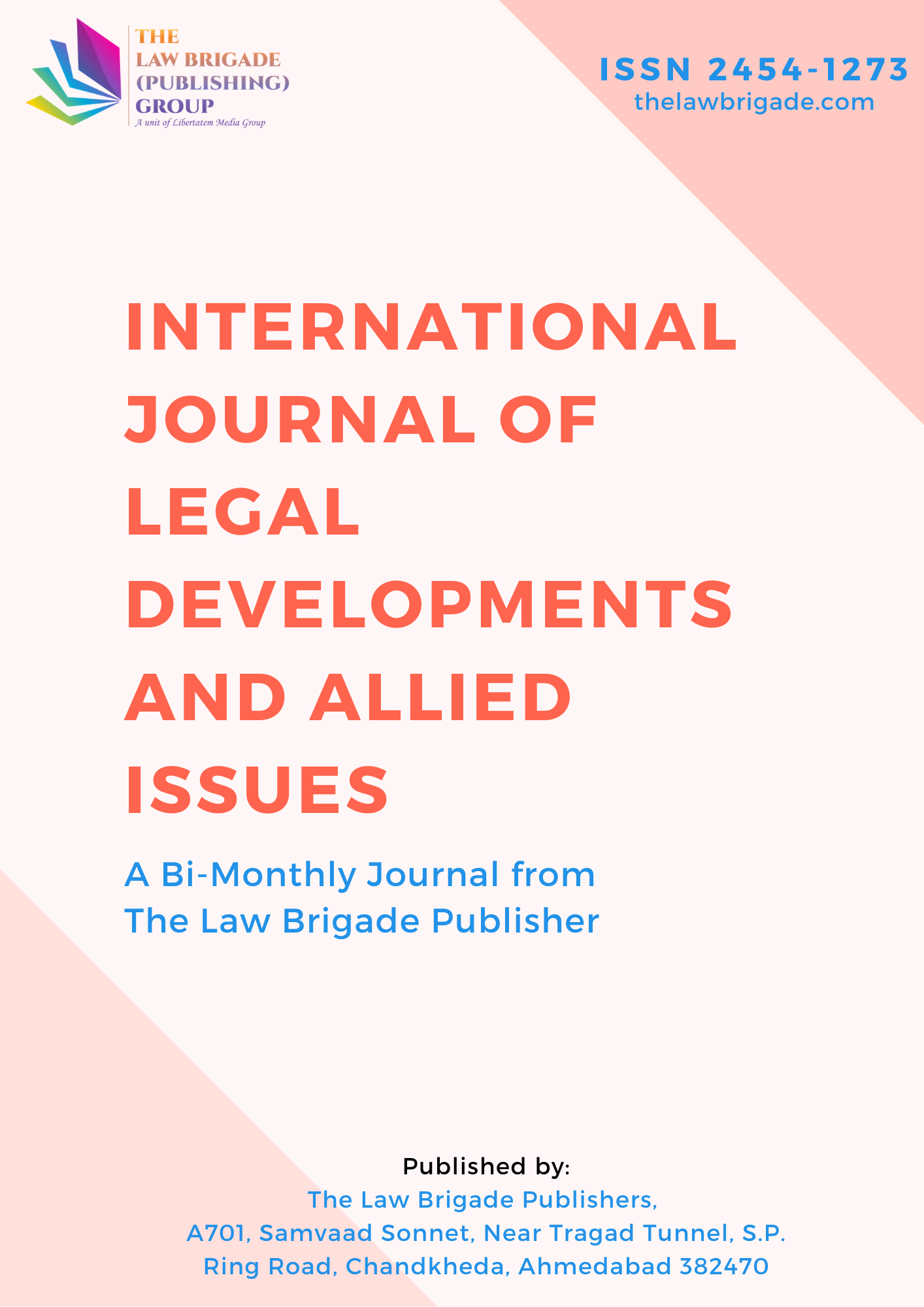The aim of the research paper is, to discuss the above case in light of whether a violation of Fundamental Rights can be immunized from judicial scrutiny on the touchstone of the doctrine of separation of powers between the Legislature, Executive, and the Judiciary. This case has once again restored faith in the doctrine that any direction by the Supreme Court or the High Court in the exercise of power under Article 32 or 226 to uphold the Constitution in maintaining the rule of law cannot be termed as violating the federal structure or doctrine of separation of power. But such extraordinary power must be exercised sparingly, cautiously, and in exceptional situations. Given the constitutional scheme and the jurisdiction conferred on this Court under Article 32 and on the High Court under Article 226 of the Constitution the power of judicial review being an integral part of the basic structure of the Constitution, no Act of Parliament can exclude or curtail the powers of the Constitutional Courts about the enforcement of fundamental rights. Such a power is essential to give practicable content to the objectives of the Constitution embodied in Part III and other parts of the Constitution. Moreover, in a federal constitution, the distribution of legislative powers between the Parliament and the State Legislature involves limitation on legislative powers and, therefore, this requires an authority other than the Parliament to ascertain whether such limitations are transgressed. Judicial review acts as the final arbiter not only to give effect to the distribution of legislative powers between the Parliament and the State Legislatures, it is also necessary to show any transgression by each entity. Thus, this case has justified Lord Steyn’s definition of judicial review: “the principles of separation of powers, rule of law, the principle of constitutionality and the reach of judicial review”.
A Critical Study of State of West Bengal v. Committee for Protection of Democratic Rights (2010) 3 SCC 571
Publication Information
Journal Title: International Journal Of Legal Developments And Allied Issues
Author(s): Ritupriya Gurtoo
Published On: 11/01/2024
Volume: 9
Issue: 6
First Page: 90
Last Page: 106
ISSN: 2454-1273
Publisher: The Law Brigade Publisher
DOI Not Allotted [Get DOI]
Cite this Article
Ritupriya Gurtoo, A Critical Study of State of West Bengal v. Committee for Protection of Democratic Rights (2010) 3 SCC 571, Volume 9 Issue 6, International Journal Of Legal Developments And Allied Issues, 90-106, Published on 11/01/2024, Available at https://ijldai.thelawbrigade.com/article/a-critical-study-of-state-of-west-bengal-v-committee-for-protection-of-democratic-rights-2010-3-scc-571/
Abstract
Keywords: Central Bureau of Investigation, Rule of Law, Separation of Power, Basic Structure and Judicial Review





